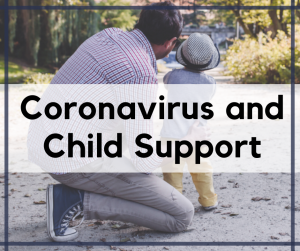Three Reasons Unwed Fathers Should Establish Legal Paternity

There’s a common misconception about unwed fathers and legally establishing paternity — Many people believe that if you don’t establish your paternity, you can dodge the responsibility of paying for child support if you later discover that the child is not your biological child. However, the fact of the matter is that this is decidedly not the case. In fact, sometimes judges rule that a man who has lived with a mother and child should have to pay child support if he separates from them even if genetic testing shows that he is not the biological father!
So you see, failing to establish legal paternity won’t spare you from child support obligations if you and the mother break up down the road. However, lacking legal paternity will cause you and your child to miss out on several benefits of the father and child bond. Read on to discover the top reasons that legally establishing paternity is a good idea.
- You get a say in important decisions that affect the child.
It is a parent’s responsibility to make educational and medical decisions on behalf of their child. Where will your child go to school? Are they allowed to join their classmates on a field trip? What happens if they get hurt? What happens if they get sick? As a father, it is your right to have a say in these decisions. However, you need to legally establish your paternity in order to be able to assert these rights.
- Your child can take part in your benefits.
Do you get health insurance through your employer? Your child can only be on your insurance policy if you have legal paternity? Do you want your child to benefit from your life insurance policy if anything happens to you? Again, you need to legally establish paternity in order for this to happen. Your legally established paternity also makes it possible for your child to inherit your assets after your death if you do not have an estate plan in place.
- Your child can access important genetic information.
Doctors use a family’s genetic history to understand a patient’s risk for certain health issues. Genetic history can also give them insight into what treatment and preventative measures will help your child most. If you want your child’s doctor to be able to access genetic information for your side of the family, you will need to establish legal paternity.
- Once you support a child, you have to continue supporting a child, sometimes without the benefits that come with being a father.
Courts have held time and time again that if you learn later on that you are not the biological father, but you have spent months or years supporting the child financially in your home, you still have an obligation to the child despite the results of the paternity test. Sadly, we have seen situations where a father learned that the child was not his biological child, was directed to pay child support, but had no rights to see the child! Don’t let this happen to you!
If you haven’t legally established your paternity yet, don’t wait any longer. The Sunshine, Isaacson & Hecht team is here to help you. Contact us today to get started.
 {5:01 minutes to read} In our first article we discussed: 1) what divorcing parents of a child with special needs should know about structuring a settlement agreement; 2) how a Supplemental Needs Trust needs to be addressed in the Agreement to ensure that the child with special needs maintains eligibility for government benefits; and 3) how child support needs to be earmarked, allocated and ordered into the Supplemental Needs Trust to ensure continued government benefits.
{5:01 minutes to read} In our first article we discussed: 1) what divorcing parents of a child with special needs should know about structuring a settlement agreement; 2) how a Supplemental Needs Trust needs to be addressed in the Agreement to ensure that the child with special needs maintains eligibility for government benefits; and 3) how child support needs to be earmarked, allocated and ordered into the Supplemental Needs Trust to ensure continued government benefits.


